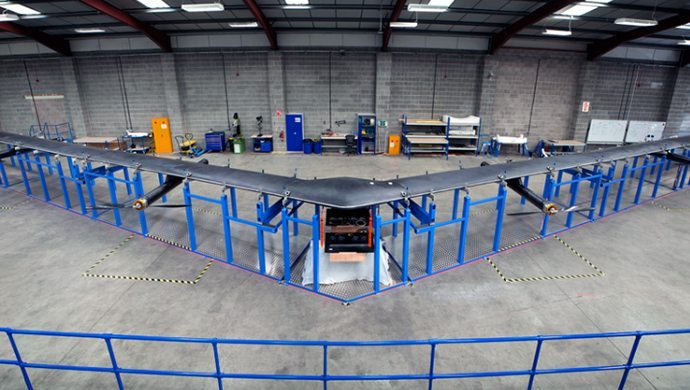The high-altitude, long-endurance solar airplane aims to give access to affordable internet to everyone, including those living in hard-to-reach locations

Photo source: Facebook
On Thursday, 21st July, Facebook announced that its internet airplane Aquila has successfully completed its first test flight. It was the first in a series of tests called “functional checks,” designed to verify Aquila’s operational models and overall structure.
During the low-altitude flight, Aquila remained in the air for 96 minutes — more than triple the minimum planned mission length. At cruise altitude, Aquila was consuming only 2,000 watts of power — which is as much as a hair dryer or a high end microwave.
When complete, Facebook claimed that Aquila will be able to circle a region up to 96 kilometres in diameter, beaming connectivity down from an altitude of more than 60,000 feet using laser communications and millimetre wave systems. Aquila can fly for up to three months at a time.
The unmanned aircraft was built following Facebook’s attempt to address the problem of connecting people living in remote locations to mobile broadband networks.
Other similar attempts to bring affordable internet to the masses include WiFi Master Key, a China-based crowdsourced WiFi app, and Facebook’s Free Basics.
Not long ago Facebook tried to introduce Free Basics, a rebranding effort meant to “better distinguish the app and website from Internet.org” to the Indian market. The attempt received a lot of flak from net neutrality activists, with entrepreneur and VC investor Mahesh Murthy saying that Free Basics is basically ‘digital apartheid’ for India’s poor.
While Facebook’s intention to allow everyone access to affordable internet in India appears to be noble, not everyone there is keen to join forces with Facebook in its supposedly life-changing mission; citing hidden dangers that come along with it.
The backlash against Free Basics and Internet.org in India
Those who are against it felt that Facebook’s effort will affect India’s telecom policies, resulting in limited access to internet. The airwaves and wireless spectrum belongs to the citizens of India, which the government of India temporarily licenses on their behalf to telcos under some terms and conditions.
According to the activists, those terms have always pushed for the development of all of India, including their poor. In other words, the policies have forced Indian mobile operators to offer a full and open internet, making it accessible by anybody.
With Facebook’s Free Basics, which will use the government’s bandwidth, the poor people of India can no longer access any site they want freely, except Facebook (and a limited number of sites chosen by Facebook).
Which brings us to the next question of: will Facebook’s Aquila work?
The post Bringing access to affordable internet: Facebook’s solar-powered Aquila takes flight appeared first on e27.